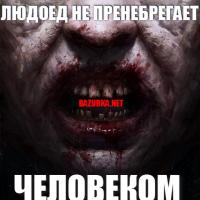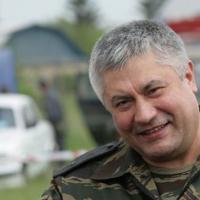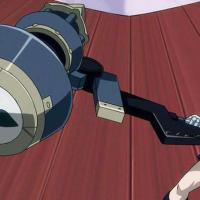Gritsyuk Sergey Anatolyevich. Stars of Courage. cannot be canceled by anyone's order. See the meaning of Gritsyuk, Sergey Anatolyevich in other dictionaries
Major Sergei Gritsyuk was part of a unit that carried out the task of blocking the combat area. The immediate task of Major Gritsyuk’s group is to remove people from under fire. The armored personnel carrier advanced to the specified line, maneuvering between obstacles. Suddenly a machine gun burst came from the alley. The bullets, having hit the armor, began to look for victims. The first dead and wounded appeared.
The armored personnel carrier became an easy target for the ambushers. The survivors quickly parachuted through the starboard side. A few meters from the damaged armored personnel carrier, behind tree trunks and withered bushes, the soldiers took up defensive positions. Their commander, Major Sergei Gritsyuk, was not among the defenders...
By decree of the President of the Russian Federation of October 7, 1993, Major Sergei Anatolyevich Gritsyuk was awarded the title of Hero of the Russian Federation (posthumously) for the courage and heroism shown during the performance of a special task. His name is forever included in the lists of the military unit.
| Sports → SSHOR BALASHIKHA HAS RECOGNIZED THE CHAMPIONSHIP AT HOME SSHOR BALASHIKHA - Kristall-Elemash Elektrostal 3-1 1-0 Goals Erokhin, 45 Sviridenko, 52 pen. Department of Physical Culture, Sports and Youth Work Balashi | |
| SSHOR "BALASHIKHA" RECOGNIZED THE CHAMPIONSHIP OF THE HOUSE SSHOR "BALASHIKHA" - "Kristall-Elemash" Elektrostal 3-1 (1-0) Goals: Erokhin, 45; Sviridenko, 52 with pen.; Skvortsov, 90. Warnings: Slobodenyuk, 83 Referee: Sergey Gurchenkov, Zhukovsky. September 15th. Balashikha. Stadium "Cryogenmash". 250 spectators. This is what happened!!! ... | |
| Balashikha News → Vladislav Anatolyevich Posadsky Born in the village of Saltykovka, Balashikha district, Moscow region. | |
Gritsyuk, Sergey Anatolievich
(8.4.1963-4.10.1993). Deputy commander of the 2nd motorized rifle battalion of the special purpose division named after F. E. Dzerzhinsky, major. Born on April 8, 1963 in the village of Kovalevka, Nikolaev district, Nikolaev region (Ukraine). Ukrainian. After graduating from high school in 1980, he entered the Ordzhonikidze Higher Military Command School of Internal Troops. He served in various positions in the Separate Special Purpose Motorized Rifle Division named after. F. E. Dzerzhinsky. Died on October 4, 1993 near the House of Soviets in Moscow. The armored personnel carrier, tail number 450, burned down (together with A.R. Savchenko, Yu.V. Lobov and O.M. Petrov), which was hit with a grenade launcher by servicemen of the 119th Parachute Regiment of the Airborne Forces, who also stormed the House of Soviets. The title of Hero of the Russian Federation was awarded posthumously to Sergei Anatolyevich Gritsyuk on October 7, 1993. Awarded the medal "For Distinction in Military Service" III degree. He was buried in the cemetery of the village of Novaya, Balashikha district, Moscow region.
- - Director, actor; born July 18, 1960 in Oktyabrsky, Bashkiria. Graduated from KGITI named after. I. K. Karpenko-Kary. Director of the film "Ukrkinokhronika". He starred in the film "Volodka's Life". Film director: "...
Large biographical encyclopedia
- - Representative in the Federation Council of the Federal Assembly of the Russian Federation from the administration of the Volgograd region since January 2001, member of the Budget Committee, chairman of the Federation Council Commission for interaction with the Accounting...
Large biographical encyclopedia
- - Head of the laboratory of the Central Institute of Military-Technical Information, born in 1958 in Karpinsk, Sverdlovsk region; graduated from the Military Academy named after F. E. Dzerzhinsky...
Large biographical encyclopedia
- - Russian physicist. Studied in Freiburg. and Gottingen. un-tah. In 1917 he graduated from St. Petersburg. univ. In 1918, prof. Saratov. University and in 1919 - prof. Moscow un-ta. B.'s works are devoted to various theoretical issues. physics...
Large biographical encyclopedia
- - Head of the Department of Naval and General Therapy of the Military Medical Academy...
Large biographical encyclopedia
- - Chairman of the Board of Directors of the Russian Funds investment group since April 1999; born July 18, 1965; Graduated from the Faculty of Aerodynamics and Flight Engineering of the Moscow Institute of Physics and Technology in 1990...
Large biographical encyclopedia
- - State Secretary - Deputy Chairman of the Russian State Committee on Youth Policy since 1997; born on December 13, 1961 in the town of Belaya Tserkov, Kyiv region...
Large biographical encyclopedia
- - Former Deputy Minister of Transport of the Russian Federation; born December 21, 1957 in Irkutsk; Graduated from the Irkutsk Institute of Railway Transport Engineers with a degree in...
Large biographical encyclopedia
- - President of OJSC Vostokgazprom since 1999; born January 20, 1957 in Perm...
Large biographical encyclopedia
- - Advisor to the Head of the Government of the Russian Federation - Minister of the Russian Federation since September 2000, Actual State Advisor of the Russian Federation, 1st class; born on October 8, 1960 in Aleksin, Tula region...
Large biographical encyclopedia
- - Vice President, Branch Manager of the St. Petersburg OJSC AKB National Reserve Bank since 1996; born December 4, 1964 in Leningrad...
Large biographical encyclopedia
- - Director of the company "Imperial IG" since 1991; born 1969; has a higher education in history...
Large biographical encyclopedia
- - Genus. 1954, d. 1996. Composer, actor, author of the so-called principles. "pop mechanics". Filmography: “Loch - the winner of water”, “Broken Light”, “Two Captains-2”, “Over Dark Water”, "...
Large biographical encyclopedia
- - Russian physicist. He studied first at the University of Freiburg and then at the University of Gottingen. In 1917 he graduated from St. Petersburg University. Since 1919, professor at Moscow University...
Great Soviet Encyclopedia
- - Boguslavsky Sergey Anatolyevich, theoretical physicist. Professor at Saratov and Moscow universities. Works on the statistical theory of crystals, hydrodynamics, molecular physics, thermodynamics...
- - Russian composer and actor. Developed the principles of the so-called. "pop mechanics". He starred in the films: “Loch - Conqueror of Water”, “Broken Light”, “Two Captains-2”, “Over Dark Water”, “Insanity Complex”...
Large encyclopedic dictionary
"Gritsyuk, Sergey Anatolyevich" in books
Dmitry Anatolyevich Medvedev
From the book Reflections of the Comandante by Castro FidelDmitry Anatolyevich Medvedev I observed him during numerous events in which he participated as President of the Russian Federation in the first few weeks of the intensification of the financial crisis now shaking the world. Despite the breakup
Mark Anatolyevich
From the book The Ship Sails On author Karachentsov Nikolay PetrovichMark Anatolyevich I had already been working in the theater for five years, but I was still considered a young artist. According to the work book, the official year of sixty-seven cannot be considered the beginning of a theatrical career, because we came to Lenkom at the end of the year, therefore, counting
SUDOPLATOV Pavel Anatolievich
From the book Chief of Foreign Intelligence. Special operations of General Sakharovsky author Prokofiev Valery IvanovichSUDOPLATOV Pavel Anatolyevich Born on July 7, 1907 in the city of Melitopol. I was left without parents early. In 1919 he went to Odessa, became a homeless child. In mid-1920, as a student of the Red Army regiment, he was assigned as an assistant telegraph operator of the communications company of the 123rd Infantry Brigade of the 41st
ZVEREV SERGEY ANATOLIEVICH
From the book 100 Celebrities of the Fashion World author Sklyarenko Valentina MarkovnaZVEREV SERGEY ANATOLIEVICH (born in 1965 or 1967) He is undoubtedly talented, and talented in everything. World-famous top stylist, makeup artist and leading hair and clothing designer, absolute European champion and world champion in hairdressing, four-time winner
PROKOFIEV Yuri Anatolievich
From the book The Most Closed People. From Lenin to Gorbachev: Encyclopedia of Biographies author Zenkovich Nikolay AlexandrovichPROKOFIEV Yuri Anatolyevich (02/20/1939). Member of the Politburo of the CPSU Central Committee from July 13, 1990 to August 23, 1991. Member of the CPSU Central Committee since 1990. Member of the CPSU since 1960. Born in the city of Muynak, Karakalpak Autonomous Soviet Socialist Republic, in the family of an employee. Russian. In 1962 he graduated from the Moscow Automechanical Institute, in 1972 from the Correspondence Party School at
Anatoly Anatolyevich Neratov
From the book Notes. From the history of the Russian foreign policy department, 1914–1920. Book 1. author Mikhailovsky Georgy NikolaevichAnatoly Anatolyevich Neratov A.A. Neratov, a fellow minister of foreign affairs since 1910, outlived five ministers in his post - S.D. Sazonova, B.V. Sturmera, N.N. Pokrovsky, P.N. Milyukova and M.I. Tereshchenko, being a living indicator of the continuity of Russian foreign policy in
Denisov Yuri Anatolievich
From the book I Fought in Afghanistan. A front without a front line author Severin Maxim SergeevichDenisov Yuri Anatolyevich After graduating from high school, I entered the Lyudinovo Mechanical Engineering College, so I had a deferment and was drafted into the army after graduation. So, on April 22, 1980, as required by summons, I appeared at the assembly point of the city
Vladimir Anatolyevich
From the book Confessions of a Normal Madwoman author Marinicheva Olga VladislavovnaVladimir Anatolyevich And again God sent me a comforter. Our first conversation began with a cautious: “Do you believe in the second reality?” I answered just as carefully: “I don’t know exactly. But Bergman, especially in his film Fanny and Alexander, showed the intertwining of these
Boguslavsky Sergey Anatolievich
From the book Great Soviet Encyclopedia (BO) by the author TSBVladimirsky Lev Anatolievich
From the book Great Soviet Encyclopedia (VL) by the author TSBIVANOV Sergey Anatolyevich (1941-1999), writer, screenwriter; TATARSKY Alexander Mikhailovich (b. 1950), film director
From the book Dictionary of Modern Quotes author Dushenko Konstantin VasilievichIVANOV Sergey Anatolyevich (1941-1999), writer, screenwriter; TATARSKY Alexander Mikhailovich (b. 1950), film director 21 It won’t be enough! Cartoon. “Last Year’s Snow Was Falling” (1983), scenes. Ivanov and Tatarsky, dir.
Sergey Aleksandrovich Petrenko, Vladimir Anatolyevich Kurbatov Information security policies
From the book Company Security Policies when Working on the Internet author Petrenko Sergey AlexandrovichSergey Aleksandrovich Petrenko, Vladimir Anatolyevich Kurbatov Information Policy
Kurekhin Sergey Anatolievich
From the book Disturbers of the City of St. Petersburg author Krusanov PavelKurekhin Sergey Anatolyevich Born on June 16, 1954 in Murmansk into a military family. As a child, he moved to Leningrad with his parents. From a young age he was interested in music. In the 70s he worked as an accompanist, played in the “Big Iron Bell”, subsequently became interested in jazz and
Jekyll Anatolievich
From the book Articles from the magazine "Company" author Bykov Dmitry LvovichJekyll Anatolyevich Now everything has been finally determined: we have a constitutional monarchy, in which the monarch plays a purely symbolic role. He is involved in charity work, and this is not the first time for him - after all, the notorious
Petrenko Sergey Anatolievich (July)
From the book Psychological Analysis in Big Football author Khigir Boris YurievichPetrenko Sergey Anatolyevich (July) Born on July 7, 1955. Ex-coach of Torpedo (Moscow) The name Sergey is from the Latin - “clear”, the patronymic Anatolyevich is from the Greek - “sunrise”. The surname Petrenko was transformed from the Greek name Peter - “stone”. Human
Biography
Notes
Literature
- Heroes of Russia of the Ministry of Internal Affairs of the Russian Federation. - Moscow, 2002.
This list presents in alphabetical order Heroes of the Russian Federation whose last names begin with the letter “G”. The list contains information about the branch of service (service, activity) of the Heroes at the time the title was awarded, date of birth, place of birth, date of death and place of death of the Heroes.
Heroes awarded posthumously are highlighted in gray in the table.
Hero of the Russian FederationHero of the Russian Federation (Hero of Russia is an unofficial abbreviated version, used more often) is a state award of the Russian Federation - the highest title awarded for services to the state and people associated with the accomplishment of a heroic feat.
The Hero of the Russian Federation is awarded a sign of special distinction - the Gold Star medal.
The title of Hero of the Russian Federation, along with the title of Hero of Labor of the Russian Federation established in 2013, refers to a separate type of state awards - the highest titles, which are in first place in the hierarchy of state awards of the Russian Federation.
If a person is awarded the title of Hero of the Russian Federation and the title of Hero of Labor of the Russian Federation in his homeland, on the basis of a decree of the President of the Russian Federation, a bronze bust with the corresponding inscription is installed.
GritsyukGritsyuk is a Ukrainian surname. Known carriers:
Gritsyuk, Alexander Iosifovich (1923-1990) - Soviet clinician, cardiologist, scientist, teacher, doctor of medical sciences, professor.
Gritsyuk, Viktor Petrovich (1949-2009) - photographer.
Gritsyuk, Vladilen Grigorievich (1933-2004) - opera singer (bass); People's Artist of the Ukrainian SSR (1978).
Gritsyuk, Ivan Grigorievich (1903-1978) - Minister of Food Industry of the Ukrainian SSR, Rector of the Kyiv Technological Institute of the Food Industry.
Gritsyuk, Nikolai Demyanovich (1922-1976) - Soviet artist.
Gritsyuk, Mikhail Yakimovich (1929-1979) - Ukrainian Soviet sculptor.
Gritsyuk, Sergey Anatolyevich (1963-1993) - Hero of the Russian Federation.
Kovalevka (Nikolaevsky district)Kovalevka (Ukrainian Kovalivka) is a village in the Nikolaevsky district of the Nikolaev region of Ukraine.
Founded in 1791. The population according to the 2001 census was 2,031. Postal code - 57103. Telephone code - 512.
Mikhailov, Alexander ValerievichAlexander Valerievich Mikhailov (1971-1993) - senior lieutenant of the Internal Troops of the Ministry of Internal Affairs of the Russian Federation, participant in the dispersal of the Supreme Soviet of Russia, Hero of the Russian Federation (1993).
Petrov, Oleg MikhailovichOleg Mikhailovich Petrov (1974-1993) - private of the Internal Troops of the Ministry of Internal Affairs of the Russian Federation, participant in the dispersal of the Supreme Council of Russia, Hero of the Russian Federation (1993).
Events of September - October 1993 in MoscowDispersal of the Congress of People's Deputies and the Supreme Council of the Russian Federation (also known as “Execution of the White House”, “Execution of the House of Soviets”, “Black October”, “October Uprising of 1993”, “Decree 1400”, “October Putsch”, “Yeltsinsky” coup of 1993") is an internal political conflict in the Russian Federation from September 21 to October 4, 1993. Occurred as a result of the constitutional crisis that developed since December 1992. The result of the confrontation was the violent end of the Soviet model of power in Russia that had existed since 1917, accompanied by armed clashes on the streets of Moscow and subsequent military actions, during which at least 158 people were killed and 423 were wounded or otherwise injured (of which 3 and 4 October - 124 killed, 348 wounded).
The crisis was the result of a confrontation between two political forces: on the one hand, the President of the Russian Federation Boris Yeltsin (see All-Russian referendum on April 25, 1993), the government headed by Viktor Chernomyrdin, some people's deputies and members of the Supreme Council - supporters of the president, and on the other hand - opponents of the socio-economic policy of the president and government: Vice-President Alexander Rutsky, the bulk of people's deputies and members of the Supreme Council of the Russian Federation led by Ruslan Khasbulatov, the majority of which was the Russian Unity bloc, which included representatives of the Communist Party of the Russian Federation, the Fatherland faction "(radical communists, retired military officers and deputies of socialist orientation), "Agrarian Union", the deputy group "Russia", led by the initiator of the unification of communist and nationalist parties, Sergei Baburin.
Events began on September 21 with the issuance by President Yeltsin of Decree No. 1400 on the dissolution of the Congress of People's Deputies and the Supreme Council, which, according to the conclusion of the Constitutional Court adopted over the next few hours, did not comply with a number of provisions of the current Constitution. In response to the televised address, the Presidium of the Supreme Council immediately, citing Article 121.6 of the Constitution, announced the termination of the powers of the president and decided that Decree No. 1400 was not subject to execution. On September 24, the X Extraordinary (Extraordinary) Congress of People's Deputies, convened by the Supreme Soviet, also announced the termination of President Yeltsin's powers since the issuance of Decree No. 1400 and assessed his actions as a coup d'etat. Boris Yeltsin, however, continued to de facto exercise the powers of the President of Russia. He was supported by the government and the leadership of the security forces (Ministry of Internal Affairs, Ministry of Defense, Ministry of Security).
According to a number of analysts, a significant role in the tragic outcome was played by the personal ambitions of the Chairman of the Supreme Council Ruslan Khasbulatov, expressed in his reluctance during the conflict to compromise with the administration of Boris Yeltsin, as well as Boris Yeltsin himself, who, after signing Decree No. 1400, refused to talk directly with Khasbulatov even on the phone.
According to the conclusion of the State Duma commission created in May 1998, the harsh actions of law enforcement agencies to suppress civil actions in support of the Supreme Council that took place in Moscow in the period from September 27 to October 2, 1993 played a significant role in the aggravation of the situation.
On September 30, the warring parties accepted the proposed mediation of Patriarch Alexy II, which was aimed at easing tensions around the House of Soviets. Negotiations began in the evening of the same day. Protocol No. 1, signed by the parties on the night of October 1, which provided for the beginning of the withdrawal of troops from the House of Soviets and the disarmament of the defenders of the Supreme Council, however, as a result of opposition from the White House defense headquarters, Ruslan Khasbulatov and Alexander Rutsky, was denounced by the Congress of People's Deputies, and further negotiations were not led to the achievement of significant agreements. On October 3, mass riots occurred in Moscow - a breach of the cordon around the House of Soviets of Russia, a seizure of the Moscow City Hall building by a group of armed supporters of the Supreme Council led by General Albert Makashov, and an attempted armed seizure of the Ostankino television center. A state of emergency was declared in Moscow, and on October 4, the Congress of People's Deputies and the Supreme Soviet were dispersed by troops brought into the center of Moscow using weapons and armored vehicles.
Opinions differ about the position of the Constitutional Court of the Russian Federation, headed by V.D. Zorkin: according to the judges themselves and supporters of the Congress of People's Deputies, it remained neutral; according to Yeltsin’s supporters, he took the side of the Supreme Council and the Congress.
The investigation into the events remained incomplete; the investigative group was dissolved after in February 1994 the State Duma decided on an amnesty for persons who participated in the events of September 21 - October 4, 1993 related to the publication of Decree No. 1400, and who opposed its implementation, regardless of the qualification of the actions under the articles Criminal Code of the RSFSR. As a result, society still does not have clear answers to a number of key questions about the tragic events that took place - in particular, about the role of political leaders who spoke on both sides, about the ownership of the snipers who shot at civilians and police officers, about the actions of provocateurs and who is to blame for the tragic outcome. There are only versions of participants and eyewitnesses of the events, journalists, political scientists, the investigator of the disbanded investigative group and the already mentioned above commission of the State Duma of the Russian Federation, which was headed by a member of the Communist Party of the Russian Federation Tatyana Astrakhankina - a direct participant in the events, who came to Moscow at the end of September 1993 to protect the House of Soviets, which her comrades members of the party, in particular Alexey Podberezkin, were called “orthodox.”
(8.4.1963-4.10.1993). Deputy commander of the 2nd motorized rifle battalion of the special purpose division named after F. E. Dzerzhinsky, major. Born on April 8, 1963 in the village of Kovalevka, Nikolaev district, Nikolaev region (Ukraine). Ukrainian. After graduating from high school in 1980, he entered the Ordzhonikidze Higher Military Command School of Internal Troops. He served in various positions in the Separate Special Purpose Motorized Rifle Division named after. F. E. Dzerzhinsky. Died on October 4, 1993 near the House of Soviets in Moscow. The armored personnel carrier, tail number 450, burned down (together with A.R. Savchenko, Yu.V. Lobov and O.M. Petrov), which was hit with a grenade launcher by servicemen of the 119th Parachute Regiment of the Airborne Forces, who also stormed the House of Soviets. The title of Hero of the Russian Federation was awarded posthumously to Sergei Anatolyevich Gritsyuk on October 7, 1993. Awarded the medal "For Distinction in Military Service" III degree. He was buried in the cemetery of the village of Novaya, Balashikha district, Moscow region.
View value Gritsyuk, Sergey Anatolievich in other dictionaries
Adov Sergey Ivanovich— (1901 - ?). Anarchist. Student. Arrested in Petrograd on April 10, 1924. In June 1924 he was sentenced to 3 years in the camps; from the end of June 1924 he was kept in the Solovetsky special purpose camp. In 1927........
Political dictionary
Aleshkin Sergey Efimovich- (approx. 1884 - ?). Social Democrat. Employee. Secondary education. Member of the RSDLP. At the end of 1921 he lived in Ivanovo-Voznesensk province, worked as a paramedic in a railway hospital. Local........
Political dictionary
Arsenyev Sergey Borisovich- (? - ?). Member of the PLSR. Peasant. At the end of 1921 he lived in the Tula province and worked as a tailor. Local security officers opened “investigative case No. 2789.” Further fate is unknown.
M.L.
Political dictionary
Askoldov Sergey Alekseevich- real name Alekseev (1871 - 1945) - philosopher, son of the philosopher A.A. Kozlov (1871-1945), author of the books “Consciousness and the Whole”. “Christianity and Politics”, etc.
Political dictionary
Barbashev Sergey Leonovich- (approx. 1888 - ?). Social Democrat. Member of the RSDLP since 1903. At the end of 1921 he lived in Smolensk province, worked in the 401st hospital. Local security officers characterized him as an “inactive” party worker.........
Political dictionary
Barskov Sergey Illarionovich- (approx. 1883 - ?). "Sympathetic" to the socialist revolutionaries. Higher education. At the end of 1921 he lived in Yekaterinburg province, worked as an engineer. Characterized by local security officers........
Political dictionary
Barskov Sergey Yakovlevich- (approx. 1897 - ?). Social Democrat. Employee. Secondary education. Member of the RSDLP. At the end of 1921 he lived in Bryansk province, worked in a trade union. Local security officers characterized him as “active”.......
Political dictionary
Barsukov Sergey Sidorovich- (? - ?). Member of the PLSR since 1915. Worker. At the end of 1921 he lived in the Bryansk province and worked as the manager of a sawmill. Local security officers characterized him as a “speaker-agitator”.......
Political dictionary
Bedselov Sergey Alexandrovich- (? - ?). Member of the PLSR since 1917. Peasant. “Inferior” education. At the end of 1921 he lived in the Vologda province and worked in the railway. workshops. Local security officers characterized him as an “agitator”.......
Political dictionary
Berdichevsky Sergei Ilyich- (1882, Aleksandrovsk, Ekaterinoslav province - not earlier than 1937). Social Democrat. Member of the RSDLP since 1902. Higher education (legal and philological), civil servant. In May 1923 he was........
Political dictionary
Borodulin Sergey Ivanovich— (? -? ?). Member of the PLSR. Peasant. At the end of 1921 he lived in the Bryansk province and worked in the household. Further fate is unknown.
M.L.
Political dictionary
Brzhosek Sergey Karlovich- (approx. 1868 - ?). Socialist revolutionary. From the nobles. Member of the AKP since 1896. Higher education. At the end of 1921 he lived in Petrograd and worked as a legal adviser in the Gubernia Executive Committee. Local security officers.......
Political dictionary
Bulgakov Sergey Nikolaevich— - Russian religious thinker and political figure (deputy of the Second State Duma). Development of problems of political economy, attempts to find its justification in........
Political dictionary
Vershinin Sergey Stepanovich— (1896 - 21.3.1921, Petrograd). Anarchist. Since 1916, sailor-electrician of the battleship "Sevastopol" of the Baltic Fleet. In the modern Soviet press and later historical works, V. was called........
Political dictionary
Galaktionov Sergey Vasilievich- (1895, Kharkov - 22.5.1938, ibid.). Member of the PLSR. From the workers. Secondary education. At the end of 1921 he lived in the Pskov province, a farmer. Local security officers characterized him as a “private man”.......
Political dictionary
Glozman Semyon (Simon) Anatolyevich— (1887 - not earlier than 1949). Social Democrat. Member of the RSDLP since 1903. Worker. Secondary education. In 1906 and 1907 he was arrested, was exiled to Arkhangelsk, arrested again in 1912, exiled to......
Political dictionary
Gorshkov Sergey Tikhonovich- (approx. 1893 - ?). Member of the PLSR since 1917, revolutionary communist. “Inferior” education. At the end of 1921 he lived in the Ufa province and worked as a printer. Characterized by local security officers........
Political dictionary
Ezhov Sergey Osipovich- (real name Tsederbaum) (August 15, 1879, Odessa, - February 25, 1939, Moscow). From the family of an employee of the Russian Shipping and Trade Society, brother Yu.O. Martova. Graduated from high school.........
Political dictionary
Yesenin Sergey Alexandrovich- (1895–1925) - great Russian poet of the “peasant direction.” In his poems he developed the themes of “mystical nationalism”, immeasurable love for Russia, its people, its nature.........
Political dictionary
Efremov Sergey Alexandrovich- (October 6, 1876, the village of Palchik, Zvenigorod district, Kyiv province, - March 31, 1939). Born into a priest's family. In 1901 he graduated from the Faculty of Law of Kyiv University.........
Political dictionary
Efremov Sergey Grigorievich- (approx. 1869 - ?). Social Democrat. Employee. Member of the RSDLP since 1917. Low education. At the end of 1921 he lived in Stavropol province, worked as an accountant. Characterized by local security officers........
Political dictionary
Zasorin Sergey Pavlovich- (approx. 1899 - ?). Member of the PLSR since 1918. Employee. “Inferior” education. At the end of 1921 he lived in the Petrograd province and worked as a secretary. Local security officers characterized him as a “Steinberger”........
Political dictionary
Ilyinsky Sergey Konstantinovich- (? - ?). Social Democrat. Member of the RSDLP since 1905. Engineer. At the end of 1921 he lived in Ufa province. Local security officers characterized him as an “inactive” party worker. Further fate is unknown.
T.S.
Political dictionary
Kalinin Sergey Grigorievich- (approx. 1893 - ?). Member of the AKP since 1915, then left SR. Peasant. Education "general". At the end of 1921 he lived in the Vladimir province and worked in the district labor committee. Local security officers.......
Political dictionary
Karpov Sergey Ivanovich- (approx. 1887 - ?). Social Democrat. From the workers. Member of the RSDLP since 1918. Low education. At the end of 1921 he worked as a canteen manager on the Syzran-Vyazemskaya railway. Local security officers.......
Political dictionary
Kirov Sergey Mironovich- (real name Kostrikov) (March 15, 1886, Urzhum, Vyatka province, - December 1, 1934, Leningrad). From a forester's family. Graduated from the Kazan Industrial School in 1904; technician.........
Political dictionary
Korshunov Sergey Filippovich- (approx. 1881 - ?). Social Democrat. From the philistines. Member of the RSDLP. Secondary education. At the end of 1921 he lived in Krasnoyarsk province, worked as a foreman at the Krasnoyarsk depot. Characterized by local security officers........
Political dictionary
Krainnov Sergey Ivanovich- (approx. 1883 - ?). Social Democrat. Member of the RSDLP since 1917. Low education. At the end of 1921 he lived in Ivanovo-Voznesensk province, worked as a caretaker on the railway. Local security officers.......
Political dictionary
Leontyev Sergey Mikhailovich- (1880, Voronino estate, Rostov district, Yaroslavl province, according to other sources, 1879, Moscow, -?). From a landowner's family. Having graduated from the Faculty of History and Philology of Moscow........
Political dictionary
Melgunov Sergey Petrovich- (December 25, according to other sources, December 24, 1879, Moscow, - May 29, 1956, the city of Champigny, near Paris). From an old noble family; father is a historian, teacher. Upon completion of the historical and philological........
Political dictionary
 The oldest sport in the world
The oldest sport in the world Vladimir Kolokoltsev: service in Afghanistan, the fight against organized crime groups and other facts from the biography of the head of the Ministry of Internal Affairs
Vladimir Kolokoltsev: service in Afghanistan, the fight against organized crime groups and other facts from the biography of the head of the Ministry of Internal Affairs What is the difference between shallots and onions? Is it possible to replace them with each other? Differences from onions
What is the difference between shallots and onions? Is it possible to replace them with each other? Differences from onions All women are like women, but I am a million dollar fool. And the main question is: what kind of woman do you need to be for this?
All women are like women, but I am a million dollar fool. And the main question is: what kind of woman do you need to be for this? Elsa Scarlett Titania. Rearmament of Elsa. Secrets of Erza Scarlett's Heart
Elsa Scarlett Titania. Rearmament of Elsa. Secrets of Erza Scarlett's Heart Anime character Elsa Alaya: biography, armor and interesting facts
Anime character Elsa Alaya: biography, armor and interesting facts The most popular anime heroine
The most popular anime heroine